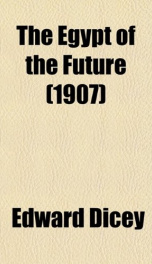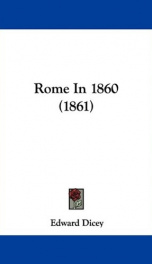the egypt of the future

Purchase of this book includes free trial access to www.million-books.com where you can read more than a million books for free. This is an OCR edition with typos. Excerpt from book: CHAPTER III THE EASTERN QUESTION The Eastern question is the old question of the struggle between the Cross and the Crescent as personified by the Russian and the Ottoman Empires. This question has influenced the whole course of European statesmanship from the days of Peter the Great; and though during the half-century which has elapsed since the conclusion of the Crimean War it has assumed a more definite character, we are still far from any final solution. The changes in the Near East during the nineteenth century have all tended to the aggrandisement of Russia in the Balkan Peninsula, and to the impoverishment of Turkey in Europe. Within the memory of men still living, Greece, Bulgaria, Servia, the Moldavian Principalities, Crete, Bosnia, and Herzegovina haveone after the other been detached from the rule of Islam and have become independent Christian communities all more or less under the protection of the great Sclav Empire of the North. The barriers which half a century ago Europe endeavoured to establish against the advance of Russia towards Constantinople have proved unavailing; and it may be said without exaggeration that the European provinces, in which Turkish authority is still paramount, are confined to Adrianople and Macedonia. The treaty of San Stefano was cancelled by the Congress of Berlin, but the various limitations imposed by this Congress at the instance of England have gradually been declared null and void. Sebas- topol has been rebuilt and refortified. The Black Sea has been converted into a Russian lake; and the Sultan has been coerced into accepting the position of a Russian Satrap holding his tenure of sovereignty upon sufferance. As a matter of fact, the Russian armies could have entered Constantinople, after they had forced their way across the...
Info about the book
Author:
Series:
Unknown
ISBN:
0754667200
Rating:
4/5 (2)Your rating:
0/5
Languge:
English
Users who have this book
Users who want this book
What readers are saying
What do you think? Write your own comment on this book!
write a commentif you like the egypt of the future try:
Other books by this author
Do you want to read a book that interests you? It’s EASY!
Create an account and send a request for reading to other users on the Webpage of the book!



